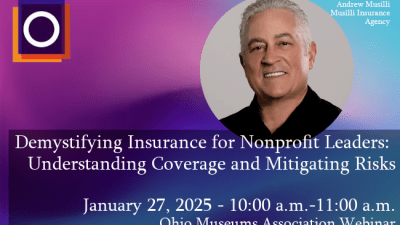I looked across the table at the poised young woman politely scanning the figures I had pulled up on the airscreen between us. “Ms. Guerrera,” I said, palms sweating, “as you can see, in the ten years since the Federal Government withdrew tax exempt status from museums, the number of museums in America has been reduced by half. Half! The 2015 National Museum Census identified 26,000 museums serving their communities across the country—the latest census found fewer than 13,000. That means 13,000 museums closed in the past decade—putting almost 100,000 people out of work, reducing the number of school visits by 20 million! Not to mention the scientific, historic and artistic heritage that has been lost to the public.”
I straightened up in my seat, looking her confidently in the eye (as I’d practiced in my training session earlier that day.) “I’m here to ask Senator Prahada to vote “yes” on the American Culture and Education Bill, restoring tax-exempt status to any museum that can demonstrate sufficient public value, while meeting the other requirements for 501(c)3 status.”
“But how would they demonstrate ‘sufficient value’?” asked Ms. Guerrera, shrewdly. “As you know, the number of institutions receiving tax-exempt status was sharply reduced in order to help balance the federal budget. Museums are nice—I like them myself! But they aren’t essential services. The hospitals kept their status by documenting the number of patient nights they provide the public. Schools report on student achievement and graduation rates. What impact do museums have?”
“I’m glad you asked,” I said with a broad smile, waving at the airscreen to bring up my next graphic. “Let me walk you quickly through the report just released by the American Association of Museums summarizing the research over the past twenty years that shows how museums contribute to educational achievement, health, the economy and quality of life in the U.S.”
Skip over related stories to continue reading articleI could see I had her attention…
*******
Think this little scenario of the future is far-fetched? With government at all levels desperately seeking new income sources, museums are being cast as “luxuries” or “amenities” rather than essential public goods. Consider these troubling indicators from just this past year:
- Thousands of charities, including museums, lost their tax-exempt status when the IRS cleaned house, scouring their records for organizations that had failed to keep up with the requisite paperwork.
- An increasing number of cities instituted or raised the levels of Payments in Lieu of Taxes, essentially charging museums for city services such as water, sewer, and security. The Boston PILOT Taskforce considered a payment that would assign a fee to the city’s museums based on a fixed rate multiplied by the number of museum visitors. Clearly that formula treated museum visitation as a cost, not a benefit, to the community!
- New Orleans’ city consultant recommended abolishing tax-exempt status for museums. The legislation currently being considered would settle for requiring a nonprofit (including museums) to prove it “relieves the government of a burden or provides important public benefits.”
How can forecasting help prevent having to make the argument my fictional future self is struggling with in 2027?
Step one, spot the early signals that identify the forces—political, cultural, economic—that will shape legislative policy, and imagine where they might lead us. We take museums’ nonprofit status for granted, right now, but scanning the news shows us that assumptions could easily be overturned.
Step two, identify what we can do in the present to avert dark futures, like that sketched above, and take us on a brighter path.
Here is the important step you can take right now:
Register for Museums Advocacy Day, and join hundreds of colleagues from across the country in Washington on February 27 and 28. The training and networking provided will help you to be an effective advocate for your museum and museums in general on a local, state and national level, and you will have the opportunity to take your message directly to your elected national representatives.
And if you are interested in delving more deeply into the political future of museums, join me at the workshop I will be leading on the morning of Monday, February 27, Forecasting the Future of Policy. I would love your help in exploring the trends and events shaping the national attitude towards museums, and discovering how this can shape what we do now.
Let’s make sure when your museum’s staff attends Museums Advocacy Day in 2027, they have a happier conversation than I have in my dark scenario above.









Not to the bad guy, but I have a tendency to feel that arguments like this are actually causing problems for museums (and nonprofits) in general.
1. Charities losing tax exempt status for failure to file 990s.
Based on the number they cleaned out, it was obviously long overdue. The museums in my state on the list no longer even exist, so, yes, they should have been removed. While I can't guarantee that's the case with every organization that was removed, I don't feel it's out of line to expect nonprofits to take care of some basic reporting. (If someone is looking for a project, it would be interesting to see hard numbers on what percentage of removed organizations do still exist, and if that varies by type of nonprofit.)
2. PILOT Taxes
Well, first, it's optional, right? So just opt not to pay. Also, see below.
3. Free water for nonprofits
In what world DON'T museums pay a water bill? (Apparently in Chicago.) I've never heard of automatically giving nonprofits this kind of perk. That's a little insane. Why shouldn't we pay for things we consume and services we require? Is this a difference between the desert parts of the West, where water is a commodity that is bought and paid for, vs. the East, (is water part of taxes, just at a flat rate?)?
4. New Orleans' consultant wanting to abolish tax exempt status.
This is an actual issue, although I don't know whether it's a legal option. (Isn't tax-exempt status a federal issue?)